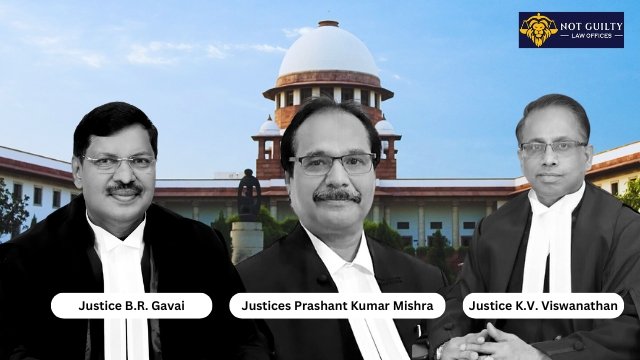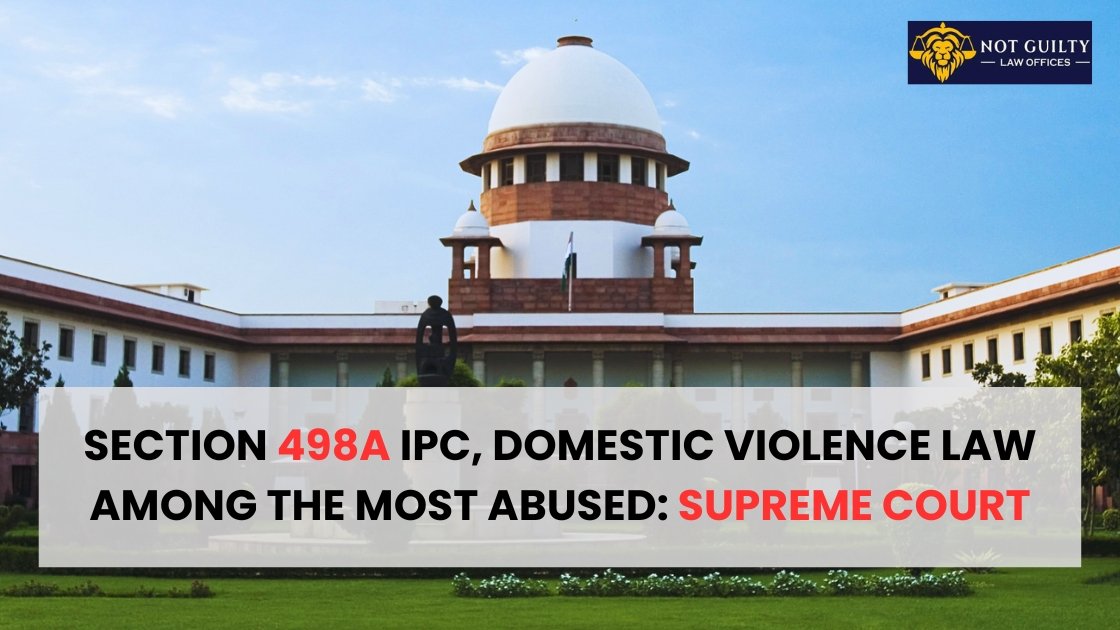Section 498A IPC, Domestic Violence Law Among the Most Abused: Supreme Court
On Wednesday, the Supreme Court of India made a significant observation regarding Section 498A of the Indian Penal Code (IPC), which addresses cruelty against married women, and the provisions of the Domestic Violence Act. The Court noted that these laws are among the most misused in the country.
This observation was made by a Bench led by Justice B.R. Gavai, with Justices Prashant Kumar Mishra and K.V. Viswanathan as part of the panel. The discussion arose during a hearing concerning a matrimonial dispute involving maintenance.

“In such matters, obtaining freedom is the best outcome,” remarked Justice Gavai during the proceedings. He elaborated on his comment by recounting a particular case where a man was compelled to pay ₹50 lakhs to his estranged wife, despite the fact that they had never lived together as a married couple.
“I witnessed a case in Nagpur where a man who had moved to the United States was forced to pay ₹50 lakhs for an unconsummated marriage. They hadn’t lived together even for a day, yet that was the arrangement. I have openly stated that the Domestic Violence Act and Section 498A are among the most misused provisions. My colleagues may agree,” Justice Gavai observed.
Section 498A of the IPC has long been the subject of intense debate. Critics argue that this provision is frequently misused by women to unjustly entangle their husbands and in-laws in criminal cases. This criticism is not new and has often been echoed by various courts across the country.
Recently, the Bombay High Court expressed concerns about the misuse of Section 498A. The Court observed that even grandparents and bedridden individuals are being implicated in such cases, which points to a troubling trend of exploitation of the law. While the Court acknowledged the plight of genuine victims of marital cruelty, it emphasized that the law meant to punish this crime is often misused. The Court further suggested that a significant number of cases could be resolved if the offence under Section 498A were made compoundable, meaning the cases could be settled between the parties involved.
Earlier this year, in May, the Kerala High Court also highlighted a similar issue, noting that wives involved in matrimonial disputes often resort to initiating criminal proceedings against their husbands and in-laws purely as a form of revenge. This misuse of the law has led to significant concern among the judiciary.
In August of the previous year, the Bombay High Court again voiced its apprehensions over the growing trend of estranged wives misusing the provisions of the Protection of Women from Domestic Violence Act. The Court observed that this misuse was becoming a tool to harass husbands and their families, further complicating already strained relationships.
In July 2023, the Jharkhand High Court also weighed in on this matter. The Court recognized that although Section 498A was introduced with the noble intention of punishing cruelty by husbands or their relatives towards married women, it has unfortunately been co-opted and misused in many instances. This acknowledgment from the judiciary underscores the widespread concern about the misuse of this law.
It is noteworthy that the IPC, which included Section 498A, has now been replaced by the Bharatiya Nyay Sanhita (BNS), 2023. A corresponding provision to Section 498A of the IPC has been incorporated in Section 85 of the BNS. This transition represents an attempt to modernize the legal framework, but the concerns surrounding the misuse of such provisions remain pertinent.
The Supreme Court’s remarks highlight the ongoing challenges in balancing the protection of genuine victims of domestic abuse with preventing the misuse of legal provisions intended to safeguard them. The judiciary’s repeated observations on this issue indicate the need for a careful review of these laws to ensure they are applied justly and without bias.



